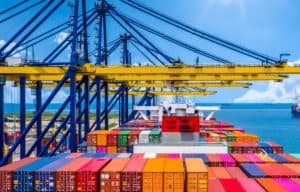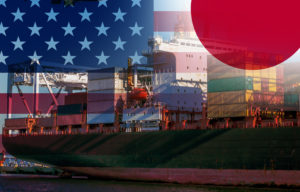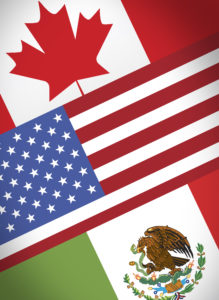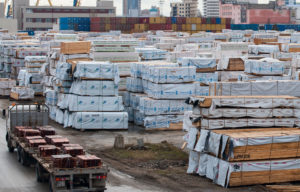News & Insights
U.S. State Department Announces Export Policy Shift: South Sudan Is Now an ITAR Proscribed Country
On February 2, 2018, the State Department’s Directorate of Defense Trade Controls (“DDTC”) announced via web notice a significant change in its export policy vis-à-vis South Sudan. Per Section 38(a) of the Arms Export Control Act (“AECA”) (22 U.S.C. 2778), the DDTC has added South Sudan to its list of proscribed countries in Section 126.1 of the International Traffic in Arms Regulations (“ITAR”) (22 CFR Parts 120 – 130). Accordingly, the DDTC will begin denying, with limited exceptions, licenses or other approvals for the export of defense articles and services controlled under the International Traffic in Arms Regulations (“ITAR”) to South Sudan. The new policy took immediate effect on February 2nd. See https://www.pmddtc.state.gov/index.html.
By way of background, the ITAR and the AECA control trade in defense articles and services. A defense article is any hardware (i.e., finished items, systems, equipment, parts, components, accessories, attachments and in certain cases tooling, production and testing equipment) and technical data (which includes software) that is designated on the U.S. Munitions List in Section 121.1 of the ITAR. The provision of services related to a defense article, such as providing training or technical assistance, is also controlled under the ITAR.
All of the so-called “proscribed countries” are identified in Section 126.1 of the ITAR and are sanctioned as a result of U.S. or United Nations arms embargoes. Other ITAR proscribed countries currently include Afghanistan, Belarus, Burma (Myanmar), Central African Republic, China, Cuba, Cyprus, Democratic Republic of the Congo, Eritrea, Haiti, Iran, Iraq, Lebanon, Libya, North Korea, Somalia, Sudan, Syria, Venezuela, and Zimbabwe.
Because South Sudan is now an ITAR proscribed country, U.S. persons are, without DDTC authorization, prohibited from–
- Selling, exporting, transferring, reexporting or retransferring defense articles (directly or indirectly) to South Sudan;
- Providing defense services to or for the benefit of South Sudan;
- Submitting proposals or giving presentations for prospective transfers or sales of defense articles (or for the provision of defense services) involving South Sudan.
These prohibitions also apply where an embassy or consulate of South Sudan, wherever located, is involved. As noted above, it is now the DDTC’s formal policy to deny applications for authorizations to trade in defense articles or provide defense services to South Sudan.
There is also an affirmative requirement for U.S. persons to submit voluntary disclosures to the DDTC where they have actual knowledge or reason to know of a proposal, sale, export, reexport or transfer of defense articles or services involving South Sudan in violation of the ITAR. This is the only instance in the ITAR where the filing of a voluntary disclosure is mandatory.
The DDTC’s shift in export policy was in response to the worsening humanitarian crisis and increased violence in South Sudan. The State Department has determined that the government and armed opposition in South Sudan, despite signing the Agreement on the Cessation of Hostilities and ongoing efforts by the Intergovernmental Authority on Development (“IGAD”) to advance peace in December 2017, have continued the use of military force to seek political advantage. As a result of the ongoing conflict, the State Department reports that approximately 1.5 million people are on the brink of famine, 2.4 million people have fled to neighboring countries, and 1.9 million people are now internally displaced. There have also been many reports that the government of South Sudan is obstructing the UN peacekeeping efforts, and that foreign aid workers continue to be killed trying to help victims in the region. The State Department also reports that the United States is seeking support for a UN Security Council Resolution implementing a formal arms embargo on South Sudan. See https://www.state.gov/r/pa/prs/ps/2018/02/277849.htm.
If you have any questions relating proscribed countries, the ITAR, U.S. embargoes and economic sanctions programs generally, or other international trade issues, please contact Melissa Proctor at Miller Proctor Law PLLC (melissa@millerproctorlaw.com).
News & Insights

Federal Maritime Commission’s Ocean Carrier Audit Program
The “Vessel Operating Common Carrier Audit Program” has a dedicated audit team that will assess carrier compliance with the FMC’s rule on detention and demurrage and provide information it considers beneficial to monitoring the marketplace for ocean cargo services.

Recent Federal Maritime Commission Activity
On April 27, 2020, the Federal Maritime Commission (FMC) issued a press release of immediate interest to the international transportation community granting temporary relief from certain service contract requirements. The FMC’s mission is to ensure a competitive and reliable international
News & Insights
U.S. State Department Announces Export Policy Shift: South Sudan Is Now an ITAR Proscribed Country
Today, the Commerce Department’s Bureau of Industry and Security (BIS) issued its notice of proposed rulemaking for certain foundational technologies and seeks public comments on the technologies that should be considered for additional export controls under the Export Administration Regulations (EAR) (15 C.F.R. Parts 730 – 774). Specifically, BIS is soliciting comments on the following:
- How to further define “foundational technology” to assist in identification of such items;
- Sources to identify such items;
- Criteria to determine whether items controlled only for anti-terrorism reasons or classified as EAR99 are essential to U.S. national security;
- Status of development of foundational technologies in the U.S. and other countries;
- Impact of specific foundational technology controls may have on the development of such technologies in the US;
- Examples of implementing controls based on end use or end user rather than, or in addition to, technology based controls;
- Any enabling technologies, including tooling, testing and certification equipment that should be included within the scope of a foundational technology;
- Any other approaches to the issue of identifying foundational technologies important to U.S. national security, including the stage of development or maturity level of a foundational technology that would warrant consideration for export control.
Comments must be submitted to the BIS on or before October 26, 2020 via mail/courier or via the Federal eRulemaking Portal (https://www.regulations.gov). The BIS will review the comments received to help identify, reevaluate and establish controls for foundational technologies. The interagency review process will result in proposed rules, as well as additional opportunities to submit public comments with respect to proposed new control levels for items controlled for anti-terrorism reasons on the Commerce Control List (CCL) in Supplement No. 4 to Part 774 of the EAR or new Export Control Classification Numbers (ECCNs) for technologies that are currently classified as EAR99.
By way of background, the Export Control Reform Act of 2018 (ECRA), which is the statutory authority for the EAR, requires the BIS to identify foundational technologies and apply appropriate export controls to them. Accordingly, the BIS and other federal government agencies are currently working to identify emerging and foundational technologies that are essential to the national security of the United States. The interagency review process must take into account:
- The development of foundational technologies in foreign countries;
- The effect export controls may have on the development of such technologies in the United States; and
- The effectiveness of export controls imposed on limiting the proliferation of foundational technologies to foreign countries.
The terms “emerging and foundational technologies” are defined under the ECRA as those that are essential to the national security of the United States and that are not critical technologies[1] under the Defense Production Act of 1950 (DPA) (50 U.S.C. 4565(a)(6)(A)(i)-(iv)). Commodities, software and technology subject to the EAR that are not critical under the DPA may be controlled for anti-terrorism (AT), crime control (CC), or short supply (SS) reasons, United Nations embargoes, or they may be classified as EAR99. The BIS notice provides that the term “foundational technologies” encompasses “technology,” “commodities” and “software” as defined in the EAR.
Of significance to U.S. exporters, items that are currently controlled only for anti-terrorism (AT) reasons or that are classified as EAR99 (for which licenses are generally not required) will also be reviewed to determine if they are foundational technologies essential to U.S. national security and therefore warrant more stringent controls. As an example, the BIS noted that such items may be reviewed if they are utilized or required for innovation in developing conventional weapons, enabling foreign intelligence collection activities, or weapons of mass destruction applications. The BIS also noted that it seeks to determine whether there are specific foundational technologies that warrant more restrictive controls (e.g., technologies that have been the subject of illicit procurement attempts which may demonstrate some level of dependency on U.S. technologies to further foreign military or intelligence capabilities in countries of concern or development of weapons of mass destruction).
Companies dealing in semiconductor manufacturing equipment and associated software tools, lasers, sensors, underwater systems, items that can be utilized in developing conventional weapons, foreign intelligence collection activities or weapons of mass destruction applications, and other items –whether or not controlled for anti-terrorism reasons only or classified as EAR99—should review the BIS’ notice and consider submitting public comments to the BIS no later than October 26, 2020. For further details, see 85 Federal Register 52934 (August 27, 2020).
[1] Under the DPA, the term “critical technologies” means the following:
(i) Defense articles or defense services on the United States Munitions List in the International Traffic in Arms Regulations (22 C.F.R. Part 121.1);
(ii) Items included on the Commerce Control List in Supplement No. 1 to Part 774 of the EAR controlled under multilateral regimes for national security, chemical and biological weapons proliferation, nuclear nonproliferation, missile technology, regional stability or surreptitious listening.
(iii) Specially designed and prepared nuclear equipment, parts and components, materials, software, and technology covered by 10 C.F.R. Part 810.
(iv) Nuclear facilities, equipment, and material covered by 10 C.F.R. Part 110.
(v) Select agents and toxins covered by 7 C.F.R. Part 331, 9 C.F.R. Part 121 and 42 C.F.R. Part 73.
News & Insights

10% Tariffs on Chinese List 4 Goods Will Take Effect on September 1st with Delayed Implementation for Certain Electronics, Apparel and Footwear
On August 13th, the United States Trade Representative (USTR) announced the imposition of an additional 10% tariff on certain Chinese-origin exports to the United States valued at roughly $300 billion (the “List 4 Goods”) as part of the ongoing trade

U.S. and Japan Announce Early Trade Agreement Commitments
On September 25th, President Trump and Japanese Prime Minister Shinzō Abe announced that the United States and Japan have, as a result of early negotiations of a free trade agreement, reached consensus in the areas of market access for certain


